China and Brazil’s Peace Initiative for Ukraine Meets Strong Resistance from Zelenskyy
China and Brazil are advocating for a peace plan regarding Russia’s war in Ukraine, claiming support from 110 countries, yet Ukrainian President Zelenskyy dismisses it as pro-Moscow. Zelenskyy argues that any viable peace negotiations must include Russia’s withdrawal and non-compromise of Ukraine’s territory. Skepticism arises from the U.S., which criticizes China’s support for Russia, amidst ongoing discussions among Global South nations endorsing China’s six-point peace framework.
China, in collaboration with Brazil, has initiated a proposal aimed at garnering support from developing nations for a peace plan to resolve the ongoing conflict between Russia and Ukraine, despite significant criticism from Ukrainian President Volodymyr Zelenskyy. This plan, referred to as China’s “Six-Point Consensus,” asserts backing from 110 countries; however, it has been criticized for lacking any provisions aimed at restoring Ukraine’s territorial integrity. During a recent meeting held on the fringes of the UN General Assembly, chaired by Chinese Foreign Minister Wang Yi and Brazilian foreign policy adviser Celso Amorim, representatives from 17 nations convened to discuss initiatives aimed at preventing further escalation of the conflict, the potential use of weapons of mass destruction, and the safeguarding of nuclear power facilities. Wang stated, “Russia and Ukraine are neighbors that cannot be moved away from each other and amity is the only realistic option,” advocating for a peace conference involving both nations. However, this proposition has been met with skepticism by President Zelenskyy, who contends that alternative peace plans merely provide Russia with the political latitude to persist in its aggressive actions. Further complicating the narrative, U.S. Secretary of State Antony Blinken has raised alarms regarding China’s continued support for Russia’s defense initiatives, asserting that entities in China are effectively facilitating Putin’s ongoing military aggressions. Despite these concerns, a coalition of ten countries from the Global South—including Indonesia, South Africa, and Türkiye—has lent its support to the peace framework proposed by China and Brazil, designating themselves as “friends for peace” with plans to maintain dialogue in New York. Moreover, South Korean Foreign Minister Cho Tae-yul has condemned Russia for its illicit arms dealings with North Korea, criticizing Russia’s frequent use of its veto power in the UN Security Council as a blockade against resolving the conflict. In response to the peace plan, President Zelenskyy articulated that any negotiations necessitate Russia’s withdrawal from occupied territories, rejecting any proposals that would entail ceding Ukrainian land. He implored China and Brazil to utilize their influence in curbing Russian hostility instead of promoting flawed peace accords. Additionally, it has been reported that China continues to reinforce its military and technical cooperation with Russia, raising questions about Beijing’s professed neutrality amidst ongoing strategic alignment with Moscow.
The conflict between Russia and Ukraine has entered a critical phase, prompting several nations to propose various peace plans to de-escalate the situation. China’s increasing economic and political ties with Russia complicate its role as a mediator. The involvement of Brazil highlights a collaborative effort among nations in the Global South to navigate the complexities of international diplomacy concerning this conflict.
The conflict in Ukraine remains a polarized issue, with diverging views on how best to achieve peace. China’s and Brazil’s peace initiative, despite claiming broad support, faces strong opposition from Ukraine and skepticism from the United States. As the situation develops, the global community must remain vigilant about the implications of these diplomatic efforts and their potential impact on the war in Ukraine.
Original Source: euromaidanpress.com
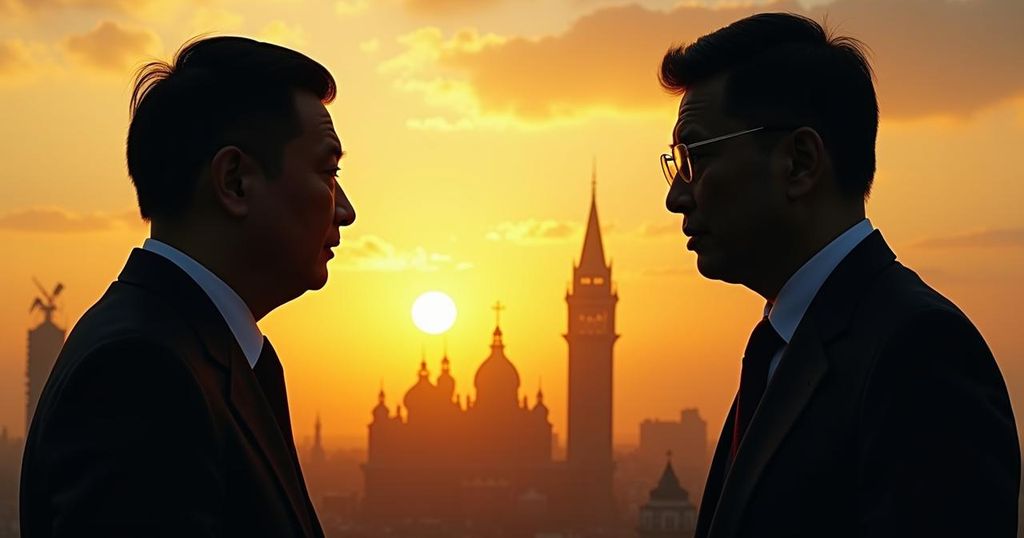

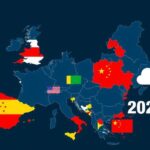


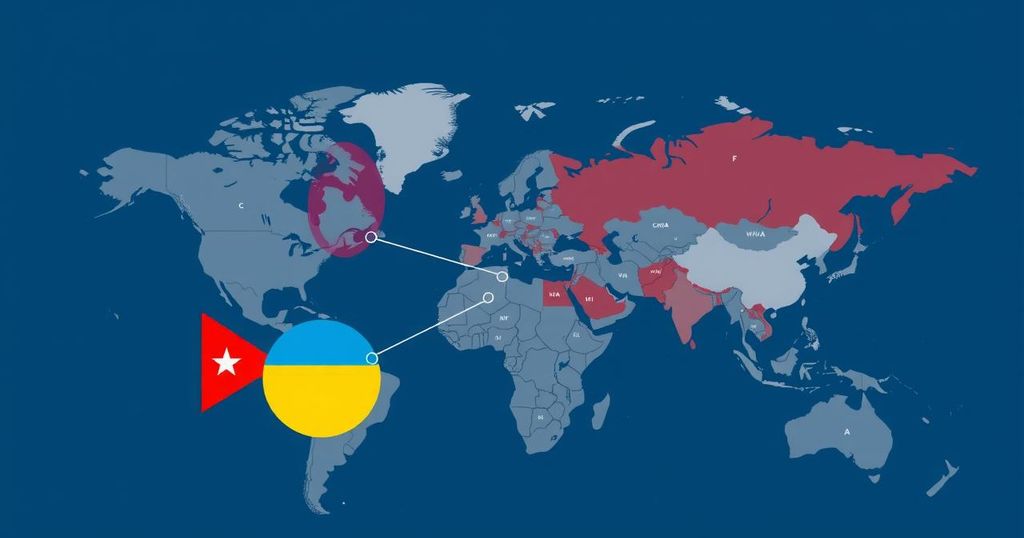
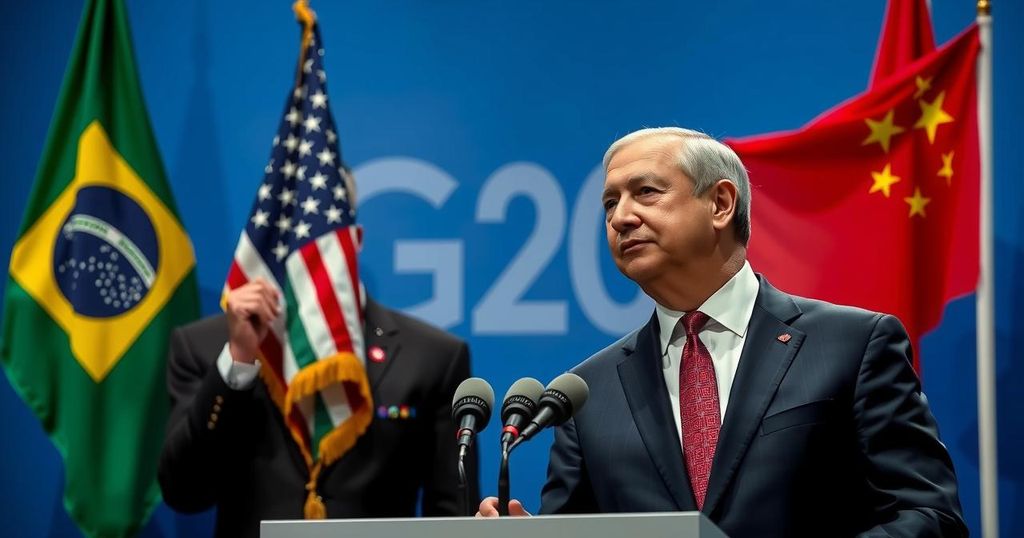
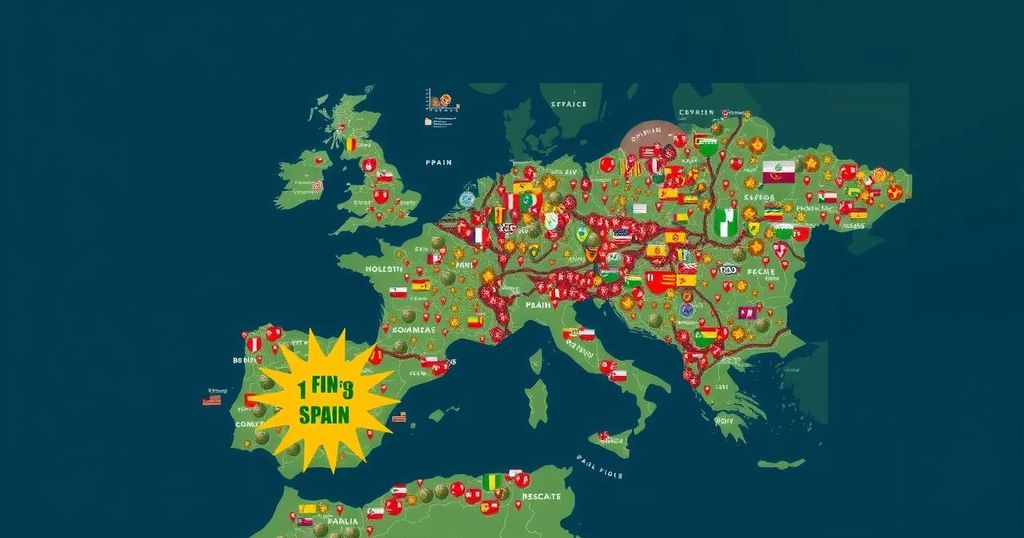
Post Comment